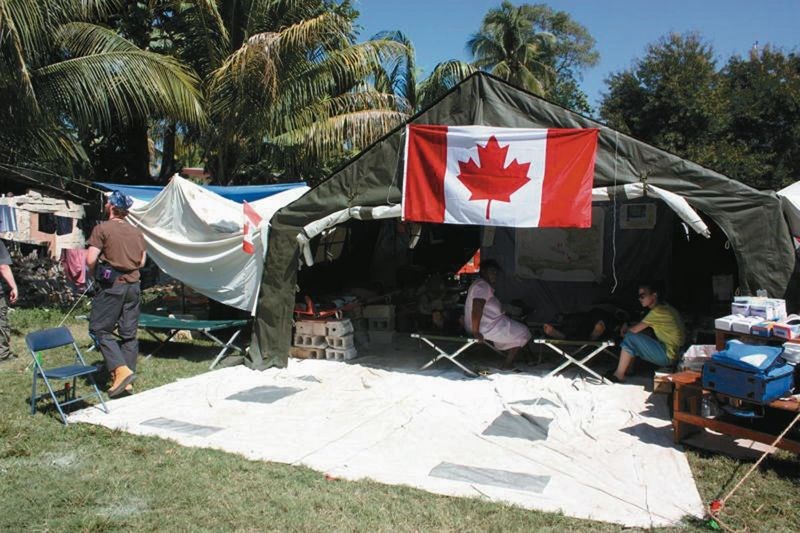Two family doctors and a nurse all from the Robson Valley have returned after saving lives and saving limbs in Haiti.
Dr. Josef Owega from McBride and Dr. Ray Markham and nurse Sandra Hodge from Valemount were among members of the Canadian Medical Assistance Team who volunteered to victims of the Jan. 12 earthquake that devastated the country.
"CMAT's Initial assessment teams quickly realized that the city of Leogane was in desperate need of help and that's where we should go," said Owega.
Located about 35 minutes from Port-au-Prince, "Leogane, with a population of 130,000 was 80-per-cent devastated, and had no medical help."
On Jan. 19, the team reached Leogane in the middle of the night and set up its inflatable field hospital.
"We started seeing patients the next morning" and with the help of Canadian military forces, saw 200 to 300 people daily for the next two weeks, Owega said.
"They came in all ages from small children to the elderly and everything in between. The main problems were earthquake injuries like broken femurs, broken pelves, spinal fractures, enormous wounds, compound fractures and infections," Owega said.
"It was a mission to save limbs, save lives and we were fortunate to have an orthopedic surgeon and anesthetist from Vancouver on the team.
"We did a lot of surgeries, amputations and fractures as well as cleaning out wounds, stabilizing patients and even delivering a couple of babies," said Owega, noting not one patient was lost in the makeshift tented hospital where team members used their physician travel packs containing medicines donated by Canada's pharmaceutical industry through Health Partners International of Canada.
Once the word spread that the doctors were there, "many people with other illnesses came -- some beyond any help we could give."
"Or resources were very limited, but we did see what seemed to be like the odd miracle," Owega said. A four-year -old child with a skull fracture contracted meningitis, and we were sure he would die, but he got better following treatment. He was one of our success stories."
"An 18-month-old child was brought in with a bad wound on the foot. It smelled bad. It was like a enormous crater or infected hole in the foot, and it badly needed to be amputated to save that child. But the mother wouldn't let it happen. We can only hope she'll change her mind."
Two things surprised the doctors during their stay there.
"The tenacity of the Haitian people surprised us. They are strong, courageous and their faith in God in unshakable at a time one would expect them to be asking why this had happened to them.
"They sing praises and shout Alleluias every morning in what's left of the streets. The first time we heard it we thought it was a riot happening," said Owega.
All three came home highly impressed with Canada's military forces who work closely with the medical teams.
"We could not have functioned without them. As well as providing security their doctors and medics worked with us providing supplies, transporting patients, helping with the set up and creating the necessary pit toilets.
"They were an enormous help and we came home with new perspective on what our forces actually do in these situations," said Owega.
The Canadian Medical Assistance Teams is a Canadian-based grassroots disaster relief organization made up of volunteer medical professionals.
For the complete "smart-version" of the Prince George Citizen visit our Digital Edition



